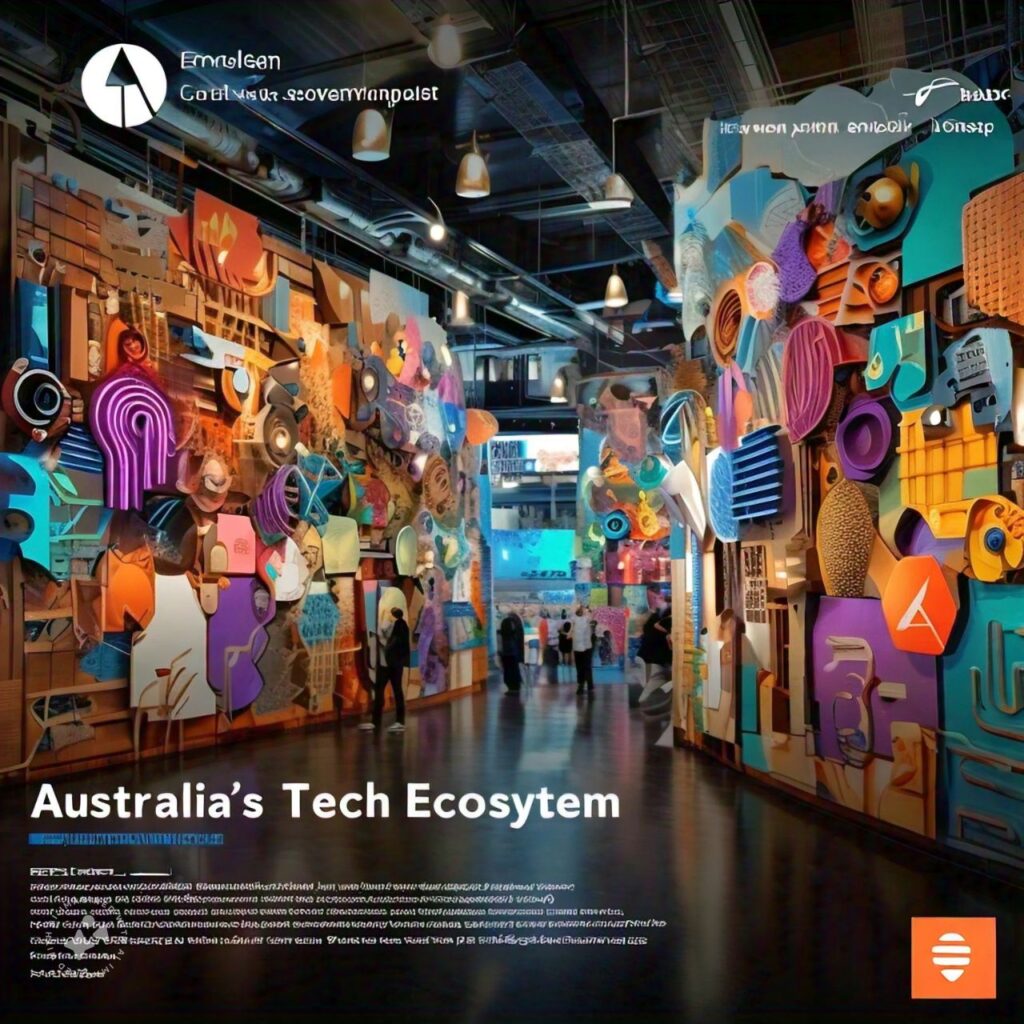
Australia’s tech ecosystem has evolved rapidly, transforming the country into a regional technology powerhouse. The “Australia tech” landscape spans sectors like fintech, medtech, agtech, and cybersecurity, supported by a robust network of startups, accelerators, investors, and research institutions. This growth in innovation, however, comes with challenges and opportunities as the country adapts to global competition, seeks skilled talent, and fosters a collaborative environment. Let’s explore the current state of Australia’s tech ecosystem, what has driven its growth, the challenges it faces, and where it may be headed in the coming years.
A Thriving Landscape of Innovation and Collaboration
Australia’s tech ecosystem is characterized by a diverse mix of startups and established players across various industries. Thanks to support from government initiatives, innovation hubs, and an entrepreneurial spirit, the ecosystem has attracted investors and experts from around the globe. Key cities like Sydney, Melbourne, and Brisbane serve as the primary tech hubs, providing a conducive environment for startups, offering co-working spaces, mentorship programs, and access to venture capital.
In 2021 alone, Australian tech startups received record levels of funding, fueled by both domestic and international investors. With government support through grants, tax incentives, and research programs, new companies in Australia tech can leverage resources to develop solutions that address local and global challenges, especially in areas like climate tech, AI, and cybersecurity.
Key Drivers of Growth in the Australia Tech Ecosystem
Several factors have contributed to the expansion of the Australia tech sector:
- Government Initiatives and Funding Programs
Australian government programs like the Research and Development (R&D) Tax Incentive and the Australian Investment Network provide essential funding and support to emerging tech companies. Programs like CSIRO’s ON Accelerate program and LaunchVic in Victoria also aim to help early-stage startups by offering resources and mentorship. Additionally, the government has been proactive in creating grants and incentives, which help drive interest in innovative sectors. - World-Class Education and Research Institutions
Universities such as the University of Sydney, University of Melbourne, and the Australian National University are not only world-renowned but also play active roles in tech development. Many of these institutions collaborate with the private sector on research projects and provide talent for the ever-growing tech job market. Australia also has notable research hubs, including the Australian Centre for Robotic Vision and Data61, a data innovation group under CSIRO. - Attractive Startup Environment and Access to Capital
The vibrant startup culture in Australia is marked by a collaborative spirit among entrepreneurs, with events like Tech23, StartCon, and PitchFest offering platforms for networking, funding, and knowledge-sharing. In recent years, local and international venture capitalists have increasingly invested in Australian startups, with prominent VCs like Blackbird Ventures, AirTree Ventures, and Square Peg Capital making significant contributions to funding rounds. This influx of capital has accelerated growth in various sectors and boosted investor confidence in the Australia tech ecosystem. - Australia’s Strategic Location and Global Partnerships
Australia’s geographic proximity to Asia has opened up opportunities for collaboration with leading tech countries, including China, Singapore, and Japan. With trade agreements and partnerships in place, Australian tech firms are well-positioned to access Asia-Pacific markets. Moreover, global companies such as Google, Microsoft, and Amazon have set up regional offices and innovation hubs in Australia, creating a synergy that helps boost the country’s tech landscape.

Challenges Facing the Australia Tech Ecosystem
Despite its impressive growth, the Australia tech ecosystem encounters several challenges that could hinder its future expansion.
- Talent Shortages
One of the most significant challenges is the shortage of skilled tech talent, particularly in emerging fields like AI, machine learning, and cybersecurity. With limited resources in the local talent pool, many companies have to look overseas to fill critical positions. Although the Australian government has implemented various visa programs to attract foreign talent, competition with other tech-driven countries remains high, making it difficult to retain skilled workers. - Limited Scale-Up Resources
While Australia has ample resources for startups, many companies struggle to transition from a startup to a scale-up phase. Limited access to funding for scale-ups, high operational costs, and logistical challenges in expanding globally often hamper a company’s ability to grow beyond the local market. Furthermore, the country’s geographic isolation presents logistical challenges for businesses looking to expand their operations abroad. - Access to Capital in Rural Areas
Australia’s tech ecosystem is largely concentrated in major cities, while rural and regional areas often have limited access to capital and resources. Bridging this urban-rural divide is essential to foster inclusive growth across the entire nation, but building up infrastructure and creating access to venture capital in rural areas remains a complex issue. - Cybersecurity and Data Privacy Concerns
As Australia tech companies continue to handle larger amounts of data and manage sensitive information, cybersecurity and data privacy become increasingly crucial. Australia’s growing reliance on cloud infrastructure and digital operations has led to higher vulnerability to cyber threats. While the Australian government has enacted regulations to improve data privacy and cybersecurity, more needs to be done to educate companies and consumers about safe data practices.
Future Prospects of the Australia Tech Ecosystem
The future of Australia’s tech ecosystem looks promising, with the country’s emphasis on innovation, technology, and sustainability likely to drive growth. By focusing on key sectors, Australia can establish itself as a leader in areas such as:
- Climate Tech and Renewable Energy
With Australia’s abundant natural resources and a pressing need to address climate change, climate tech has significant potential in the Australia tech landscape. Companies specializing in renewable energy, emissions reduction, and sustainable agriculture are likely to find ample support in the coming years. - Medtech and Healthcare Innovation
The Australian healthcare sector has demonstrated resilience and adaptability, making medtech an essential area of growth. The COVID-19 pandemic accelerated advancements in telemedicine, remote patient monitoring, and health data analytics, with Australian companies at the forefront of these innovations. - AI and Robotics
AI and robotics are becoming integral to multiple industries in Australia, including mining, manufacturing, and agriculture. Australia’s focus on AI research and robotics through initiatives like the Australian Centre for Robotic Vision highlights the country’s potential to become a global leader in these technologies. - Fintech and Blockchain
The fintech sector has been flourishing in Australia, driven by innovations in digital payments, blockchain, and financial services. With a strong regulatory framework and a high adoption rate, fintech startups are well-positioned to capitalize on the digital shift in banking and finance.
Conclusion
Australia’s tech ecosystem has demonstrated remarkable growth, driven by strong government support, an active startup environment, and global partnerships. While challenges such as talent shortages and limited scale-up resources persist, Australia is well-positioned to address these issues through strategic investments and policy changes. With a clear focus on innovation, sustainability, and collaboration, the Australia tech landscape is set to make a substantial impact on both the local and global stages. As more startups and established companies enter the ecosystem, Australia’s tech industry will continue to contribute to economic growth, employment, and technological advancements for years to come.
FAQs
1. What sectors are driving growth in Australia’s tech ecosystem?
Key sectors include fintech, medtech, climate tech, AI, and robotics, with strong support from government programs and research institutions.
2. What challenges does the Australian tech ecosystem face?
Major challenges include a shortage of skilled talent, limited scale-up resources, urban-rural disparities in funding, and cybersecurity concerns.
3. How is Australia addressing the tech talent shortage?
Australia has implemented visa programs to attract foreign talent and collaborates with universities and training institutions to grow the local talent pool.




